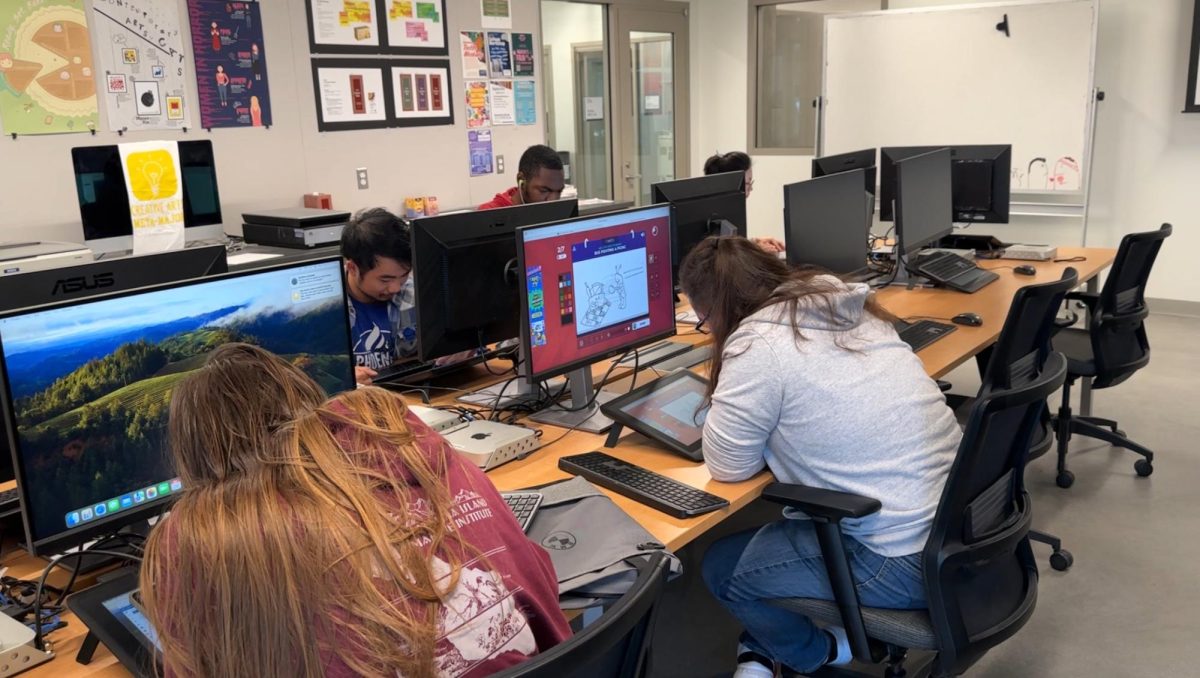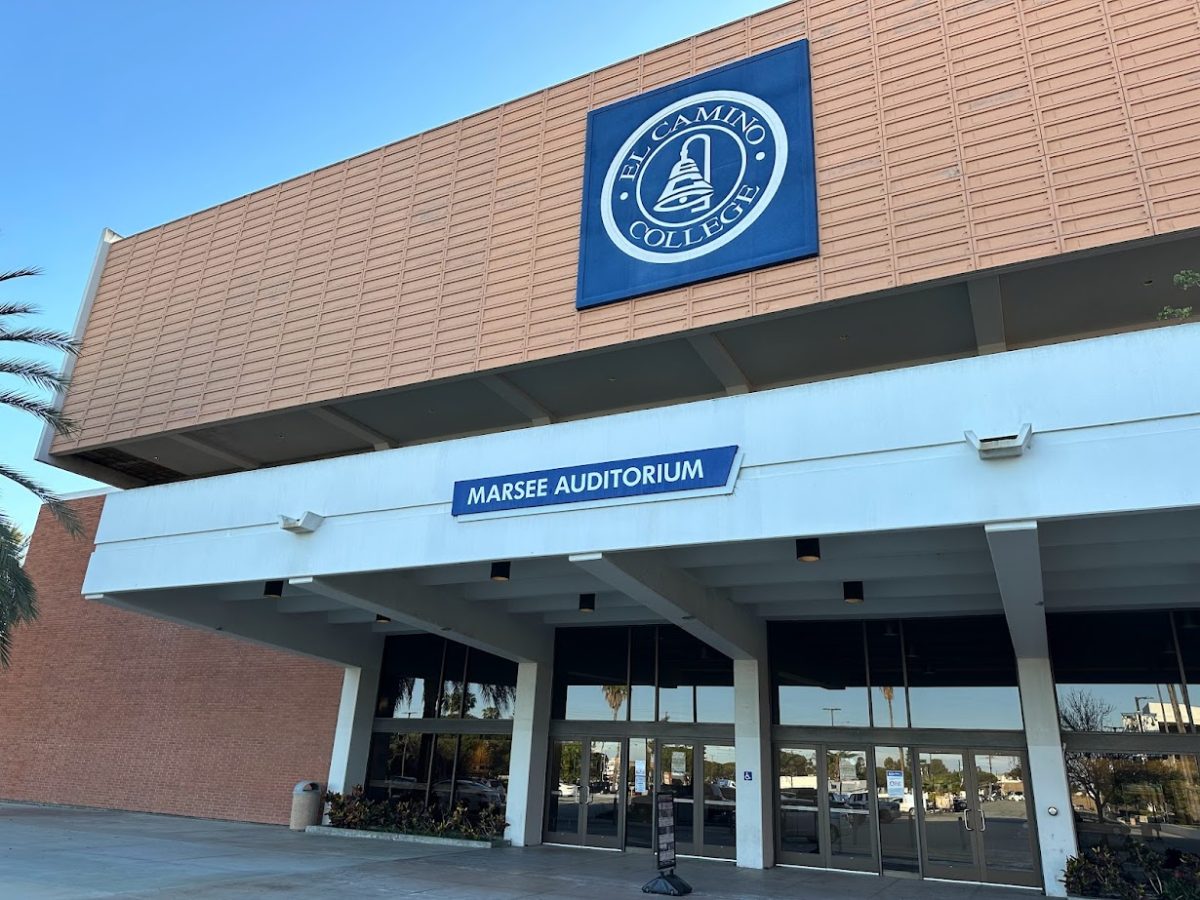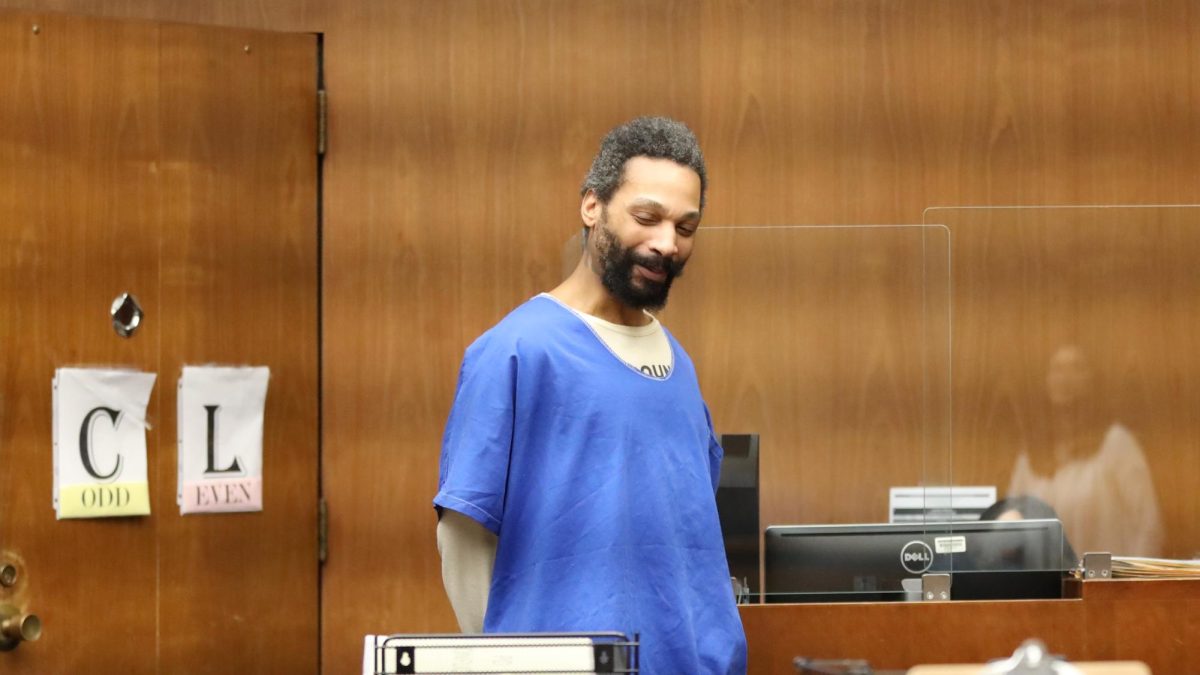Getting good grades and transferring to a University are usually on the forefront of an El Camino students mind, and in order to achieve these goals, they will often resort to cheating.
“My parents and family expect me to do well and that means a 3.5 GPA,” Mario, a second semester student said as he rushed off to his psychology class.
Pressure from family seems to be a big factor that pushes students to cheat and usually trumps any pressure they may put on themselves.
“I know that I am trying my best, but my parents don’t always know that,” Katelyn says.
For some students, they believe that their parents don’t always see the countless hours students spend in class and out reading textbooks and doing practice problems,
“In the end, they only see the grade on the transcript, and that’s all that matters,” Katelyn said.
Besides family pressure creating the temptation to cheat, the sense of ease students get when cheating also makes it a clear-cut choice for some.
“If it wasn’t so easy, I don’t think I would do it, regardless of how it would help my grade,” said Katelyn.
There are accounts of students getting away with elaborate cheating schemes and in the end getting an A in the course even though they haven’t the slightest what the class is really about, which is sometimes enough to prompt someone to look over at someone else’s paper during a test.
“No one who ever cheats gets a lower grade than if they wouldn’t have cheated, so even if I end up with a B, that’s still better than a D,” Mario said.
Students might not necessarily be cheating in an attempt to get stellar grades, but rather they may cheat just to avoid failing and therefore ending their college career.
While students believe this does not make cheating right, they believe it does lend some sympathy to the side of the person who is cheating.
“I am horrible at physics, but my best friend is really good, so she let me look at her paper for the multiple choice part of tests,” Michelle says nonchalantly. “I didn’t get an A in the class. I got a C, but it was better than having to retake it!”
Faculty members said they were not proponents of cheating because they are out there doing their jobs and teaching for a reason.
Some faculty members believe that cheating is sometimes the result of students being unwilling to do the work and hoping for a quick solution.
“Cheating is often due to people who try to take the easy way out,” Amy Grant, professor. “Students who cheat make the world a worse place.”
Some professors believe cheating is the result of a students desperately wanting a better grade and being willing to do anything to get it, even if they don’t deserve it.
“I think (students who cheat) are very grade-driven,” Kenneth Lars, mathematics professor said. “I don’t think they realize that cheating is inappropriate. They are not aware that it is not moral and unethical.”
Despite excuses, professors are taking action against cheating.
“I always make an effort to prevent cheating in my classes,” Grant said.
Some professors make sure they are in control of many aspects of the test-taking environment to prevent cheating.
“I have two versions of a test. Also, I don’t allow them to choose where they can sit on the day of an exam,” Lars said. “Using two decks of standard playing cards, and I place cards on desks and shuffle the remaining matching hands and deal them out to students. The students then sit at the desk that has their matching card. That way, it will be impossible for students to choose to sit next to their friends or anyone else in particular.”
Other professors do not go to such great lengths and try not to be hasty with assumptions, but they still make sure to take action so any possible cheating will be stopped.
“I think students cheat because they feel pressured to pass their classes,” Susan Taylor, mathematics professor, said. “I usually try to go on the assumption of innocence. I ask the student to move to another chair just because maybe there might be an issue. Without trying to accuse them, I basically move them to another part of the room.”
Even with all of the opinions there are surrounding cheating and excuses students have for doing it the fact still remains, it is wrong, as is believed by some students.
“I don’t cheat,” Carla said. “Students who cheat are lazy and don’t take the time to sit down, stay put and study.”
Students sometimes cheat despite guilt, but believe that professors sometimes unintentionally allow it to occur.
“I know it’s wrong to cheat because when I do, my heart is pouding,” Ashley said. “I think professors let us cheat if they leave for long periods of time.”
Some students believe as long as students can think of reasons to cheat, and are getting away with it, the cheating will continue.
“There will always be students cheating regardless of how strict the college is,” Carla said.





